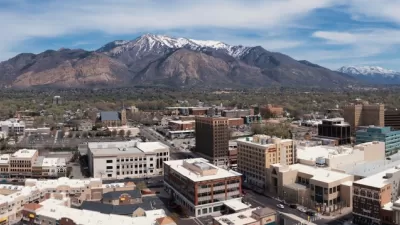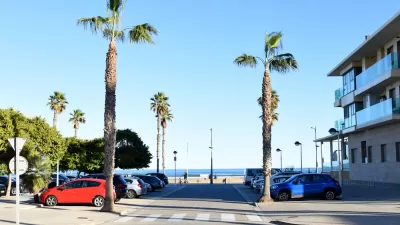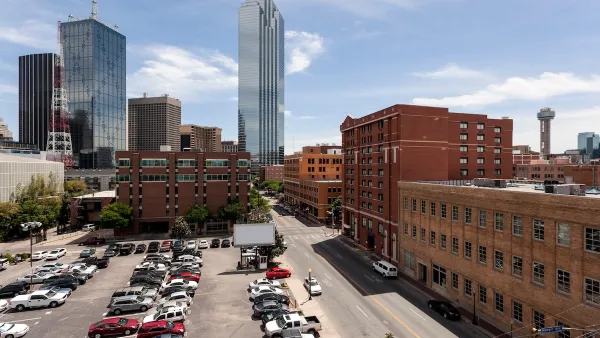More cities and states are recognizing the harmful impacts of minimum parking requirements, which in many cases have accelerated sprawl and raised the cost of housing construction.

California’s recent decision to eliminate parking requirements at developments near public transit could have a major impact on the country’s parking lot ‘addiction,’ writes Ciara Nugent in Time. “The move will encourage developers to build more affordable homes for people who don’t want a parking space, and generate ‘more walkable neighborhoods and public transit,’ [California Governor] Newsom said.”
According to Nugent, “The shift is heartening for climate advocates who believe redesigning cities and how people move around them must be a critical part of the country’s efforts to reduce its outsize greenhouse gas emissions from cars.” The law doesn’t bar developers from building as much parking as demand calls for, but prevents cities from maintaining often exaggerated requirements that drive up building costs.
The article details the history of minimum parking requirements, which began as a reaction to the sudden influx of automobiles to cities as the invention became more affordable. “As more people bought cars, a self-fulfilling cycle set in: cities started to separate districts by use, assuming everyone can drive from their residential area to their shopping area to their office. Large highways began to cut through town centers, making it harder to cycle or walk.”
Today, the tide is slowly turning against parking as cities and states eliminate parking minimums, invest in public transit and other multimodal infrastructure, and encourage developers to build denser, more transit-oriented development that reduces the American overreliance on cars.
FULL STORY: Americans' Addiction to Parking Lots Is Bad for the Climate. California Wants to End It

Maui's Vacation Rental Debate Turns Ugly
Verbal attacks, misinformation campaigns and fistfights plague a high-stakes debate to convert thousands of vacation rentals into long-term housing.

Planetizen Federal Action Tracker
A weekly monitor of how Trump’s orders and actions are impacting planners and planning in America.

San Francisco Suspends Traffic Calming Amidst Record Deaths
Citing “a challenging fiscal landscape,” the city will cease the program on the heels of 42 traffic deaths, including 24 pedestrians.

Defunct Pittsburgh Power Plant to Become Residential Tower
A decommissioned steam heat plant will be redeveloped into almost 100 affordable housing units.

Trump Prompts Restructuring of Transportation Research Board in “Unprecedented Overreach”
The TRB has eliminated more than half of its committees including those focused on climate, equity, and cities.

Amtrak Rolls Out New Orleans to Alabama “Mardi Gras” Train
The new service will operate morning and evening departures between Mobile and New Orleans.
Urban Design for Planners 1: Software Tools
This six-course series explores essential urban design concepts using open source software and equips planners with the tools they need to participate fully in the urban design process.
Planning for Universal Design
Learn the tools for implementing Universal Design in planning regulations.
Heyer Gruel & Associates PA
JM Goldson LLC
Custer County Colorado
City of Camden Redevelopment Agency
City of Astoria
Transportation Research & Education Center (TREC) at Portland State University
Jefferson Parish Government
Camden Redevelopment Agency
City of Claremont





























